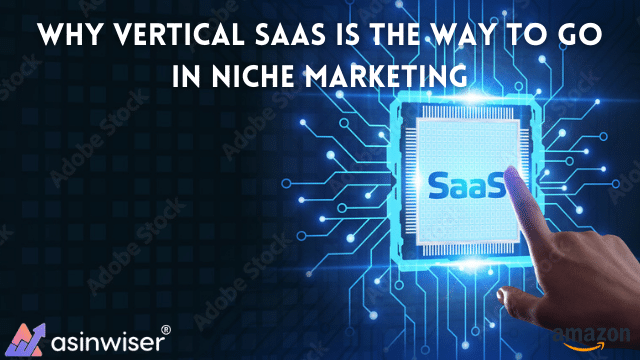
Why Vertical SaaS Is The Way To Go In Niche Marketing
The expanding SaaS industry has a range of risks and rewards. Marketing strategies are rapidly evolving, and these shifts are having an impact on more significant issues.
As a result, SaaS has developed in two directions: vertical SaaS and horizontal SaaS. What is the discrepancy, and how do each of these arms work in the context of software options? As shown in a recently published report, the SaaS industry is expected to grow to nearly $70 billion by 2023.
Methods that fully engulf and fill a particular industry’s requirements fit into this classification of SaaS products. Food, medical products, groceries, biosciences, and so on. Consumers prefer to purchase from merchants who offer a narrow array of goods and services.
Customers of commerce platforms should expect nothing less from their app providers. The vertical SaaS marketplace solution combines enterprise business capacities with industry-specific improvements, allowing for incorporating the unique practices that distinguish and succeed a business.
All of the enterprise elements in a vertical SaaS marketing have been educated, clipped, and designed for a particular industry vertical – with all of the quality standards built-in, such as facilitated selling, self-service alternatives, customized pricing, specialized integrating, and membership billing, for example.
The advantages of Vertical SaaS for Business
Vertical SaaS apps have grown in prominence over the last decade and will remain to do so. Vertical SaaS has a lot of potential for companies of all sizes, particularly as they become more innovative and steer away from on-premises, in-house IT, and cloud-based IT.
• Short Deployment Time
Customers get their tenants instantly, but trading, like other SaaS products, would arrive pre-installed and prepared to use right away. Molding or last-mile modifications can start much earlier in a specific area. It allows for worry-free asset monitoring while also saving money on IT
• Scalability
A vertical SaaS marketing solution’s enterprise amalgams cycles without wasting time and money on tracking, surveillance, and preservation. It also entails receiving regular, electronic software updates with smooth advancements, allowing continuous, rapid innovation.
• Integration
Vertical SaaS marketing offers powerful, tight, and native predefined automation with other products from the start. Consider how ERP, billing, institutional arrangements, payment services, and advertising could be incorporated with some of the essential products in the industry.
• Benchmarking
Commerce entails a variety of industry-specific regulatory and legal responsibilities that can be resolved through effective governance. A sector marketplace solution provider can delegate staying on top of these compounds and regularly changing rules.
• Compliance And Governance
Commerce entails several industry-specific regulatory and compliance commitments that can be addressed through efficient policy-making procedures. Staying on top of these consistently changing and challenging regulations can be delegated to an industry-specific marketplace solution provider. As the need for digitalization spreads to more enterprises, marketplace solutions become more of a centerpiece, and a critical source of income-making for companies, the clamor for specialized solutions will rise. The current focus is on consumer products retail, and there are already many customized solutions on the market.
However, vendors may, at some point, pay attention to client demand, recognize the income and buyer loyalty opportunities, and enter the market. When the fork in the road comes, vertical commerce (SaaS) will be the obvious choice.
The most effective SaaS platform for the food delivery marketplace
If you’re a budding investor with some great principles and theories and want to build a food ordering and delivery app, Yelp is the way to go. Yelp is a fully managed location-based marketplace innovation platform that provides you with ready-to-use elements for building your food delivery app or website.
A yelp is a software as a service (SaaS) platform that allows users to build a food ordering and delivery app without writing a single line of code, designing, or testing it.
If you are an online Amazon seller, then you must have an intelligent tool that will guide your business towards success by targeting the brand story, right keyword, products research, analyzing competitors, fba calculator and so much more. Get your ticket to success today!
Share this:
Subscribe to Our Newsletter
Recent Post
- Top 13 Amazon Inventory Management Tools for FBA Sellers in 2023
- Asinwiser: The Ultimate OMSGuru Alternative for Amazon Sellers
- Repricer.com Alternative: Why Asinwiser is the Superior Choice for Amazon Sellers
- Aura Alternative: Why Asinwiser is the Superior Choice for Amazon Repricing
- Maximize Amazon Sales with Asinwiser: The Superior Amazon Repricer & Revenue Analytics Tool
